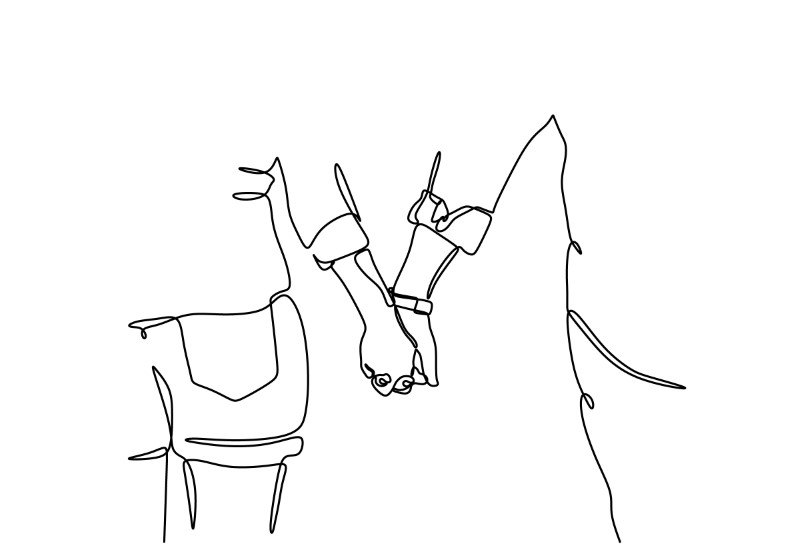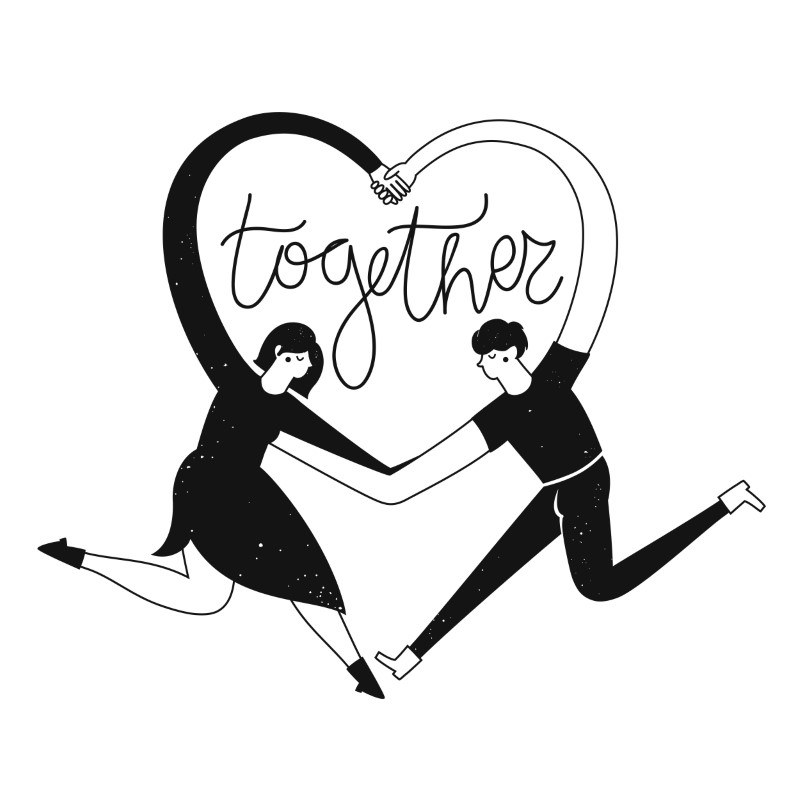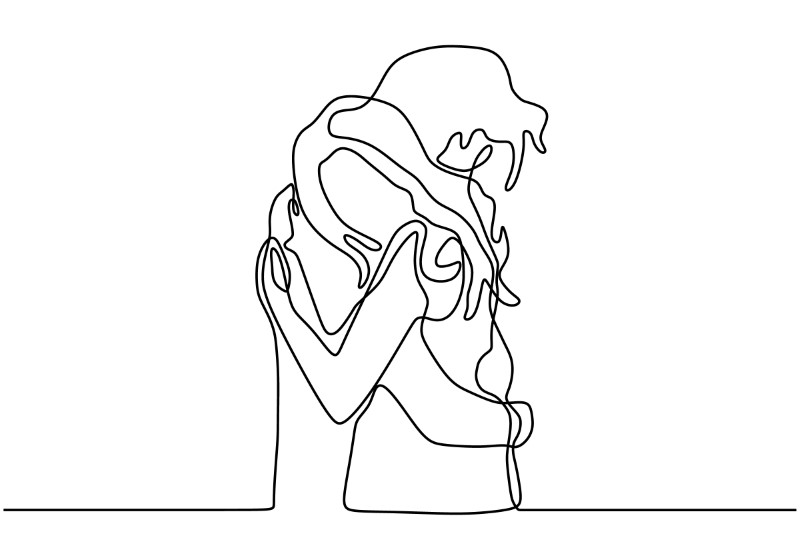Being in the closet can be a scary and miserable experience, whether you’re transgender or identify otherwise within the LGBTQ+ community. Everyone’s experience of being in the closet is different, but one thing that is consistently difficult to do is dating someone that hasn’t come out yet.
Even if it’s difficult to date someone trans that’s in the closet, is it still possible? We’ll answer that question and more in this article.

Rules when dating a closeted trans person and they don’t want to come out
There is always a reason why someone is still in the closet, and it could vary from person to person. Whatever the reason, it’s important to listen to them and follow what they ask of you. It could put their safety and well-being at risk if they are “outed” without their consent.
It’s important to talk to your partner about what their own personal guidelines are, but here is a list of some things to keep in mind:
- They don’t owe you the story on why they are in the closet. It could be an extremely sensitive topic.
- Establish how you’re able to communicate with them. Depending on other people in their life, some methods may not be safe for them, such as people overhearing a phone call or their parents checking text messages.
- Find out who is allowed to know about your relationship. There’s a chance this circle could be extremely small, or even only be known between the both of you.
- Ask if you’re allowed to post anything online, or remain private.
- Ask how you should act and be perceive in public. Are you able to display affection in public? Should you use a different sexuality label for your relationship?
- Find out how to introduce each other to other family and friends that might not know about your partner being in the closet.
This isn’t an exhaustive list, and as always it’s better to check what your partner’s boundaries are, but the list above can at least give you an idea of the things to keep in mind.

Why don’t they want to come out?
Someone might be in the closet because they are still living with their parents that don’t accept transgender people and don’t want to risk being kicked out, or perhaps they don’t want to be bullied at work or school.
Especially for young people, it can be more than just an uncomfortable discussion.
One of the most common reasons people are scared to come out is because they either know or are afraid that their parents won’t accept their gender identity. As a minor, this could put their mental health and safety at risk as they could either be stuck in a toxic situation, or be kicked out of the house by the same people that are meant to protect them.
High school is another scary place that may not have a proper safe space for non-binary and trans people. Being in high school is a strange place where everyone is still trying to figure out who they are, and many different people can be teased for not conforming to what other students deem as “normal”.
Another reason a trans person may not want to come out yet, is they could be worried about their place of work. In some parts of the world, there are no legal protections for trans people regarding discrimination in the workplace. There is also the possibility of a trans person not being hired for a new job simply because their boss may be transphobic.
The thought process for the trans person is if they don’t come out to their work, then they might not experience those hardships at the expense of their mental health.
How can I support my trans partner when coming out?
If you’re interested in or are already dating a closeted queer person and are wondering how you can support them when they do decide to come out, how can you do that?
The most important thing to keep in mind is to always follow the lead of the closeted person. As we already mentioned, coming out can be a scary and even dangerous time in someone’s life. If you out them without their consent, that is a violation of trust and could put their safety at risk.
It might be common sense, but another thing you can do to support your trans partner is exactly that—support them!
This could look slightly different depending on the situation, but you could offer a safe place to stay if they might need it, and let them know that you’re there for them. Especially if other people in their life might not support them, it’s important to have any support that they can get.
After they come out of the closet at their own pace and offer your support, another thing you could possibly do is help them acquire some things that might help them with their transitioning journey. When people are just starting to show their own true gender expression, they might not have as many clothes, accessories, personal care items, etc. that other people in the trans community might have.
If they’re a trans man, some suggestions of some things you could get them are binders for their chest, men’s deodorant, or new clothing. For a trans woman, they might be interested in makeup as well as clothing that might align better with their gender identity. Of course, every person is different and it’s also important to find out what they might be interested in.

Dating and relationship issues when one of you is closeted
Any relationship can face some challenges, but what are some issues that might come up when you’re dating someone that’s in the closet?
A common issue is depending on the situation, you may not be able to attend family events with that person depending on what their boundaries are for the relationship. In some cases, depending on who they date could even make other people suspicious of their gender identity which is why you may not be able to go to some events with them.
Related to not being able to attend family events is the possibility of not being able to have a public relationship. When someone is in the closet, they don’t want anyone to find out about the identity that they are hiding. The more public their relationships are or the more they choose to express themselves, the more there is the chance of someone finding out about their identity.
If you were already dating that person and then they come out to you that they are trans, they could be concerned that your sexual orientation doesn’t fit with their gender identity. It’s important to talk about what this means for your relationship if that’s the case, but that could be another potential issue.
Within the relationship, the trans person could also experience gender dysphoria. In basic terms, this relates to a feeling of distress in regards to their current body not matching with their gender identity. This could also pose a challenge in regards to sexual activities, as it could cause distress based on how they feel about their body parts.
Dating someone in the closet when you’re out — can I make the relationship work?
Despite the challenges that you may be faced with, it’s definitely possible to date someone that’s in the closet.
We already mentioned that your relationship may at least partially need to remain a secret as it could put your partner at risk the more public it becomes, and the amount of support that your trans partner needs from you, but if you’re able to accept that, it can be a rewarding relationship.
Everyone deserves to feel love and validation from others, including closeted trans people. Their current situation may be difficult and stressful to go through, but it’s often not a permanent situation and they may just be waiting for a safe space to exist in order to finally come out of the closet.
That’s why it’s important for them to have other support systems in place, whether it’s from a partner or anyone else.

Want to know how you can help your partner with gender dysphoria? We’ve got honest and authentic tips!
Safe dating apps for closeted trans people
If you’re currently in the closet but you’re looking for someone to date, are there dating apps that you can use? Luckily, the benefit of online dating is that it has the potential to be anonymous until you decide to meet the person behind the screen.
- OkCupid: This app has several advantages for closeted people. You’re not required to use your name on the app even though they recommend it, and they have a feature where you can answer several questions about your values and opinions to help match with other users better. However, you do need to upload at least one photo of yourself.
- Grindr: Grindr has the potential to be completely anonymous as it allows you to customize your username and doesn’t require you to upload photos, but it does have some drawbacks. The main userbase is mostly gay men, and a lot of the people that use Grindr tend to use it to search for hookups rather than long-term relationships.
- Tinder: They now allow users to sign up using your phone number, so you don’t need to have a Facebook account to sign up anymore. Also, you aren’t required to upload a photo of yourself. Another advantage is that because there are so many people that use Tinder, it’s less likely that someone you know would see you straight away.